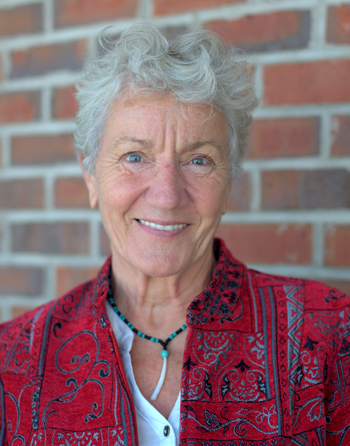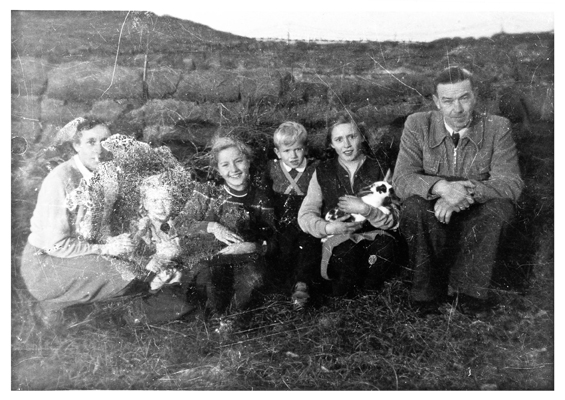AN Original CARE PACKage recipient

The CARE Package® became a global icon of American generosity because it touched the hearts of tens of millions of people; people like Ingrid Hurtubise.
Here is her story:
I was 4 years old when the Second World War ended. My family lived on Sylt, a German island in the North Sea where my father’s cousin had a farm. Life after the war was hard. There was little work, hardly any food to buy, no coal and little wood to heat the two-room former ammunition depot that had become our home in Sylt. We ate herring and had black bread. Once my father brought home a barrel of oranges he found floating in the sea. They were salty from the sea water, but we ate them anyway.
It was around this time that a parcel arrived at our home. It was a CARE Package, one of 100 million similar packages of food and other vital supplies donated by Americans to people in need around the world, starting with Europeans devastated by the war. I was young, maybe 5 years old, but I remember there was butter in this magical package from an organization called CARE and a green translucent toothbrush for my sister, which she cherished for years. We loved it. There was also cornbread, which my sister and I had never had before and didn’t like the taste. Even hungry kids can be unreasonably picky when they encounter unfamiliar foods.
I was only a small child. I didn’t understand the war or its causes, but my mother explained to us just how special it was that strangers from a country against which our country had just fought a war were making such a kind gesture. And I didn’t need my mother to explain to me how nice it felt to receive something when you have almost nothing.
My life is very different today. I live comfortably in Atlanta (which, as fate would have it, is now the headquarters for CARE). I’m a business owner, a mother and a grandmother. And thanks to a recipe I got from a Georgia-born friend, I even love cornbread. But part of me is still that little girl whose heart was touched by the generosity and kindness of a far-away stranger; someone who saw beyond nationality and global politics to extend a hand to a family in need.
I know that today there are girls much like me around the world who, because of circumstances beyond their control, live in squalor. Some have fled fighting in places such as Syria or the Democratic Republic of the Congo, finding temporary homes wherever they can. Perhaps those girls, decades from now, also will be able to look back fondly at people in a far-away place called America who reached as deeply into their pockets as they could to help them in their time of need.

Ingrid (third from left)
with her family on Sylt.